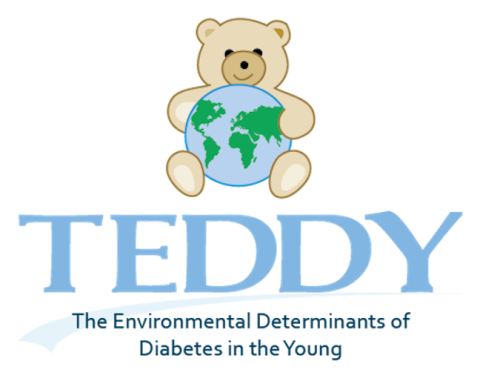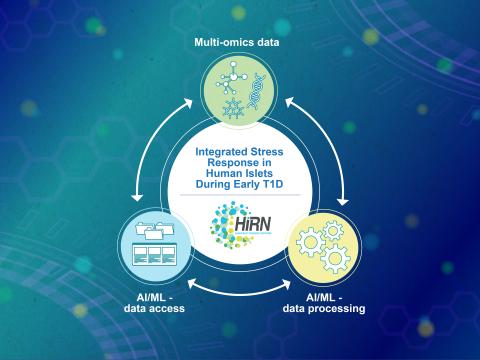Description
The Environmental Determinants of Diabetes in the Young (TEDDY) study is searching for factors influencing the development of type 1 diabetes (T1D) in children. Research has shown that there are certain genes that correlate to higher risk of developing T1D, but not all children with these genes develop the disease. This has led researchers to hypothesize there may be additional environmental triggers for the onset of T1D. To study this hypothesis TEDDY is a multi-national cohort that has enrolled children with high-risk of developing T1D and is tracking environmental exposures, such as diet, illnesses, allergies, and other life events. These children are followed from birth to age 15 with blood samples are taken every 3 months for the first 4 years, and then every 6 months for the remainder of the study, dependent on measured outcomes of multiple autoantibody positivity and T1D. A wide variety of ‘omics data is collected from the samples, such as proteomics, lipidomics, and genomics sequencing. These data sets along with the clinical data can be found by requesting access the TEDDY NIH Data Repository and more information is available at https://teddy.epi.usf.edu/TEDDY/index.htm.
Data made available is a part of the project to provide AI/ML Ready Datasets for Type 1 Diabetes.
Projects (1)
Machine learning is a core technology that is rapidly advancing within type 1 diabetes (T1D) research. Our Human Islet Research Network (HIRN) grant is studying early cellular response initiating β cell stress in T1D through the generation of heterogenous low- and high-throughput molecular...
Datasets
4



